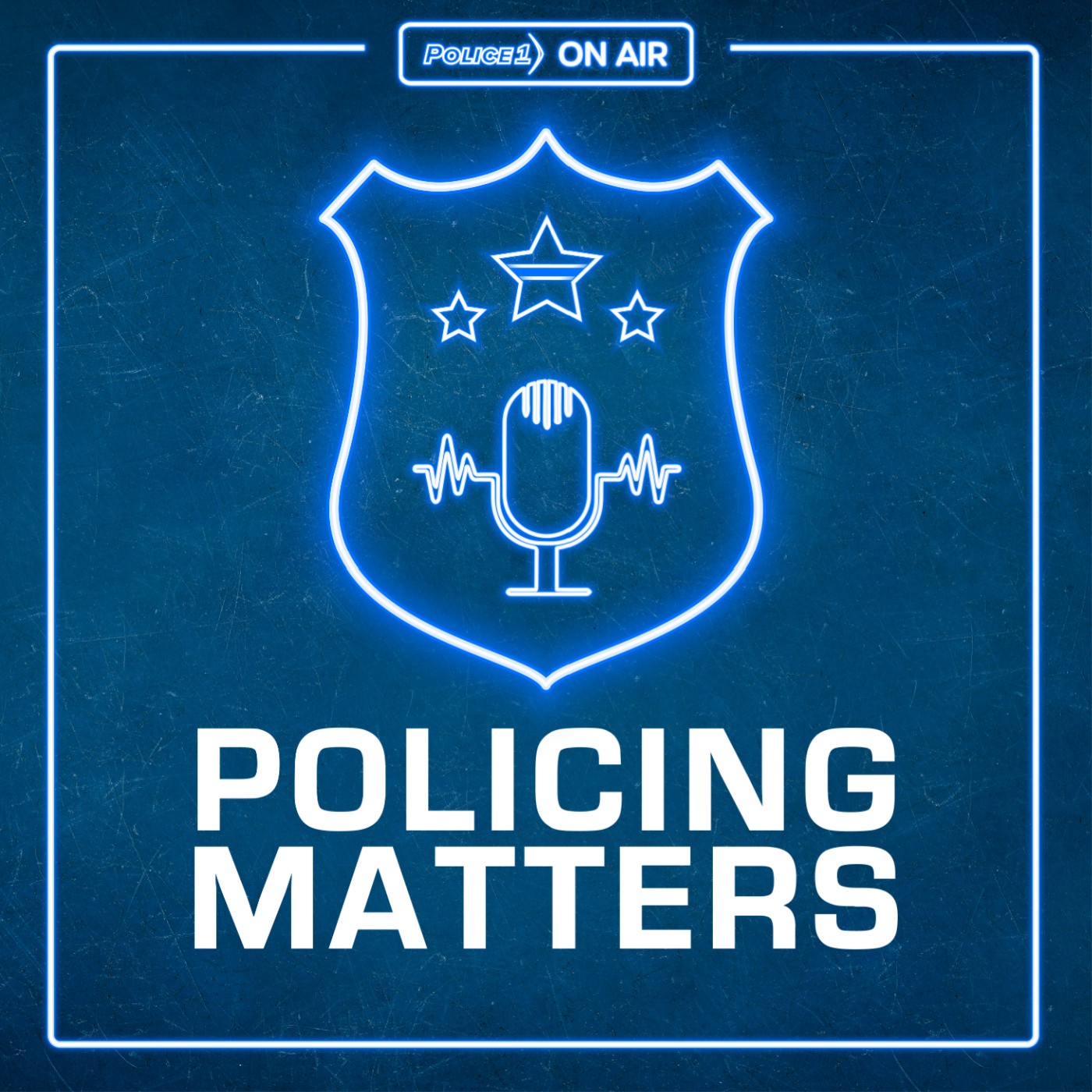
Talking the beat to cover what matters to you as an LEO. Join deputy chief Jim Dudley (ret.) every weekly as he sits down with law enforcement leaders and criminal justice experts to discuss strategy, challenges and trends in policing.
Talking the beat to cover what matters to you as an LEO. Join deputy chief Jim Dudley (ret.) every weekly as he sits down with law enforcement leaders and criminal justice experts to discuss strategy, challenges and trends in policing.
Episodes

Friday Nov 30, 2018
Living Hell: How police and firefighters render aid in wildfires
Friday Nov 30, 2018
Friday Nov 30, 2018
The Camp Fire in Northern California is the deadliest, most destructive wildfire in the state's history. The entire town of Paradise was destroyed, displacing as many as 50,000 people who now find themselves homeless, possessing only the clothes they wore in the hasty exodus from the disaster area. Among those who lost all their material possessions are some of those first responders fighting the fire and delivering people to safety. In this podcast segment, Jim and Doug discuss how first responders deal with such massive operations.

Friday Nov 16, 2018
How one Calif. SRO is helping kids be safer on social media
Friday Nov 16, 2018
Friday Nov 16, 2018
Young people are on social media for many hours a day — posting on sites and apps such as Facebook, Instagram, Snapchat, and Twitter. Social media posts — even those that have been deleted — live forever, and inappropriate posts can have an adverse effect on a kid's future many years down the line. Furthermore, many online interactions can turn ugly. Too often, a social media post can influence young people to contemplate dying by suicide. In this podcast segment, Doug Wyllie sits down with Brentwood PD Officer Mitch Brouillette, who serves as the SRO at Heritage High School, to discuss a program he created — Pause Before You Post — aimed at keeping kids safer online.

Friday Nov 09, 2018
How cops‘ interactions with kids can help resolve the recruiting crisis
Friday Nov 09, 2018
Friday Nov 09, 2018
Police officers have a unique opportunity to positively influence the lives of countless children — many of whom do not really have very many positive role models in their lives — to become productive members of society when they grow up. Significant opportunities exist for those officers to not just help kids see what "doing good" looks like, but to influence them to have the desire to "do good" themselves. In this podcast episode, Doug Wyllie sits again with Brentwood PD Officer Mitch Brouillette, who serves as the SRO at Heritage High School, to discuss how cops can be their department's best recruiters.

Friday Nov 02, 2018
How one Calif. high school uniquely thanked their SRO
Friday Nov 02, 2018
Friday Nov 02, 2018
Officer Mitch Brouillette of the Brentwood, California Police Department was the subject of a heartwarming "practical joke" executed by the students of Heritage High School, resulting in a video posted to the Internet that quickly went viral. The students concocted an elaborate ruse, coupled with a live song and dance performance, as well as some incredibly thoughtful gifts in thanks to "Officer Mitch" for all the things he does for them. In this podcast episode, Brouillette sits down with Doug Wyllie at the school to describe that day.

Friday Oct 26, 2018
How a 9th Circuit ruling could impact sit-lie laws
Friday Oct 26, 2018
Friday Oct 26, 2018
The Ninth Circuit Court of appeals unanimously ruled in favor of a lawsuit by people experiencing homelessness that challenges laws making it illegal to sleep on public property overnight. The constitutional ban on cruel and unusual punishment under the Eighth Amendment prohibits "criminal penalties for sitting, sleeping, or lying outside on public property for homeless individuals who cannot obtain shelter," the court said in its decision. In this podcast segment, Jim and Doug discuss how the decision could impact cities with sit/lie laws, which prohibit sitting or lying on the sidewalk.

Friday Oct 19, 2018
Why safe injection sites are a bad idea
Friday Oct 19, 2018
Friday Oct 19, 2018
The California Legislature recently passed (and Gov. Jerry Brown then vetoed) a controversial piece of legislation — Assembly Bill 186 — that would have allowed entities to open so-called "safe injection sites" — facilities where drug users would be able to shoot up in an enclosed environment supervised by medical professionals on the lookout for signs of overdose. The trouble is, doing so is in direct contravention with Federal law. In this podcast segment, Jim and Doug discuss the reasons such sites are not a good approach to solving the opioid epidemic.

Friday Oct 12, 2018
How environmental elements can help reduce crime
Friday Oct 12, 2018
Friday Oct 12, 2018
Crime Prevention Through Environmental Design (CPTED) is defined as a multi-disciplinary approach to deterring criminal behavior through environmental design. CPTED strategies rely upon the ability to influence offender decisions that precede criminal acts by affecting the built, social and administrative environment. In this podcast segment, Jim and Doug discuss how architecture and landscaping, outdoor lighting, and other environmental elements can help to reduce crime.

Thursday Oct 04, 2018
The pros and cons of GPS tagging tech in vehicle pursuits
Thursday Oct 04, 2018
Thursday Oct 04, 2018
There is no argument that police pursuits can sometimes end in fatal collisions — crashes that kill fleeing suspects, police officers, and innocent bystanders. Police pursuits are an inherently dangerous endeavor. As some police agencies examine "no pursuit" policies, others are looking at new GPS tracking technologies that allow police to drop back and watch a monitor for where the suspect vehicle ends up. In this podcast segment, Jim and Doug discuss the technology — the potential upside as well as some minor flaws.

Friday Sep 28, 2018
Detecting marijuana DUI and enforcing the law
Friday Sep 28, 2018
Friday Sep 28, 2018
DUI doesn't mean just alcohol — it means driving under the influence, and driving under the influence of marijuana is a crime in every state in America. The trick is detecting the impairment, which is now only really done with field sobriety tests — there is no breathalyzer for marijuana, although some companies are getting close to solving that riddle. In this podcast segment Jim and Doug discuss the difficulty with detecting and enforcing impaired driving as a result of marijuana intoxication.

Friday Sep 21, 2018
How to prevent police officers from dying by suicide
Friday Sep 21, 2018
Friday Sep 21, 2018
At the time of this recording session, 92 police officers in America have died by suicide. In Chicago, three officers died by suicide in the span of one month. In 2017 that number was 154, and in 2016 there were 138 verified instances in which an officer died by suicide. And these are just the officers we know about. In this podcast segment, Jim and Doug discuss the warning signs for officers to watch out for of a colleague potentially approaching crisis, as well as available resources for officers to get the help they need.
